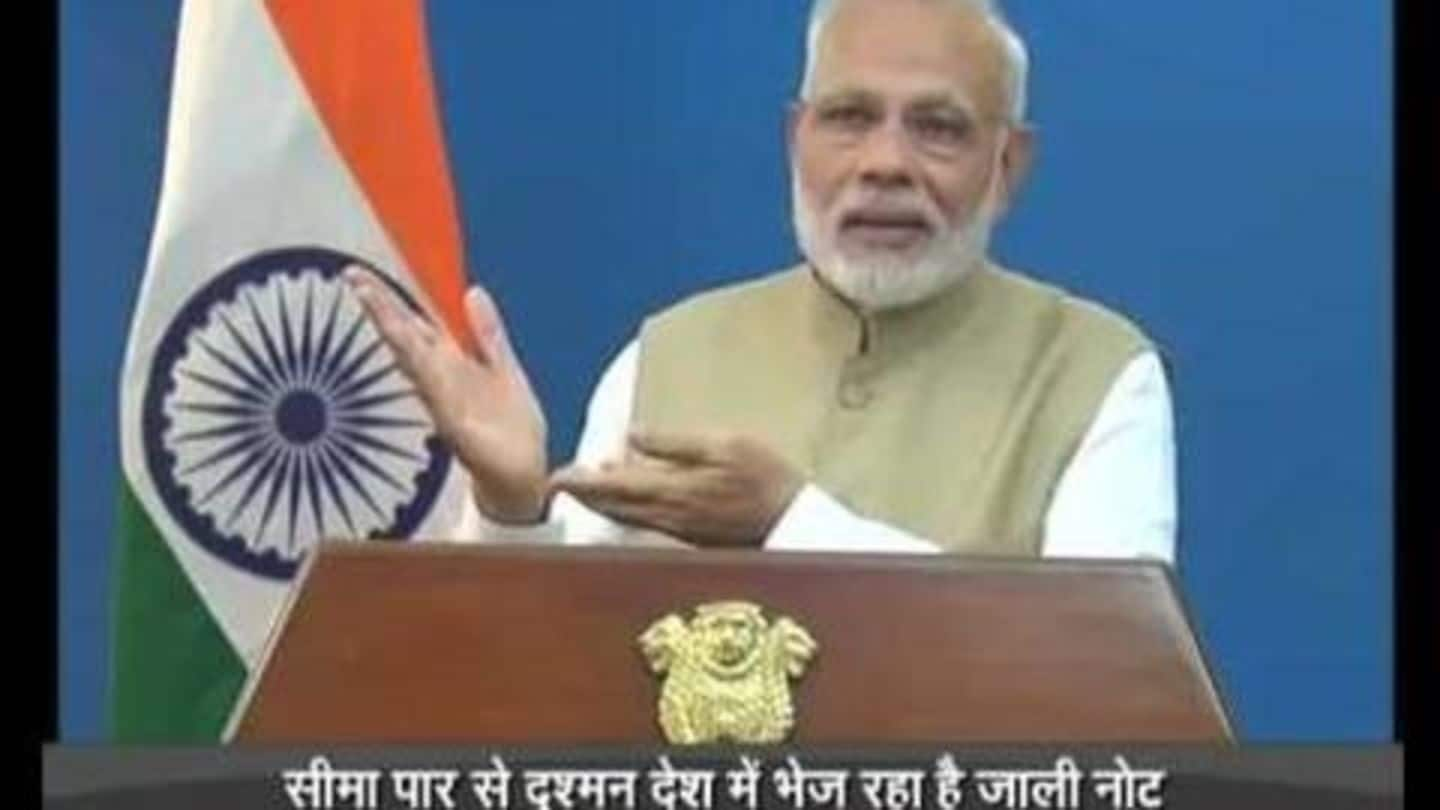
RBI disagreed with Centre's claims on demonetization: Report
What's the story
Before giving its approval to Centre for demonetization on November 8, 2016, the Reserve Bank of India rejected claims that it would curb black money and counterfeit notes, IE reports. Almost four hours after the RBI approved the move, Prime Minister Narendra Modi in a televised speech banned Rs. 500 and Rs. 1,000 notes. RBI directors warned of negative effects on GDP too.
The meeting
RBI's Central Board had six objections with the proposal
That day the Central Board of the bank hurriedly called its 561st meeting at 5:30 PM. The board pointed out six objections in the proposal draft sent to them by the Finance Ministry on November 7, 2016. On December 15, 2016, RBI governor Urjit Patel signed the minutes of the meeting. The board didn't agree with the Centre's arguments of black money.
Objections
Black money isn't in form of cash, RBI told Centre
The proposal claimed demonetization would curb black money, but the board disagreed. It noted, "Most of the black money is held not in the form of cash but in the form of real sector assets such as gold or real-estate." About counterfeit notes, the board said it amounted to Rs. 400 crore but it added the amount was not that significant.
Quote
Fake notes a problem but amount wasn't significant: Board
"While any incidence of counterfeiting is a concern, Rs 400 crore as a percentage of the total quantum of currency in circulation in the country is not very significant," the board had highlighted.
Details
Government's views on economy, HD notes weren't approved by RBI
The board didn't agree with the government's proposal that growth of the Indian economy was linked to the high amount of HD notes in circulation, because inflation wasn't considered. "The growth rate of economy mentioned is the real rate while the growth in currency in circulation is nominal. Adjusted for inflation, the difference may not be so stark," the minutes of the meeting noted.
Digitization
But RBI noted digital transactions would get a major push
The board noted demonetization could adversely impact medical and tourism sectors and recommended that private medical stores should be exempted from it. Notably, RBI and Centre had been in talks about demonetization for six months and all this was discussed then, the minutes noted. RBI noted demonetization would give a major push to digital transactions and let people see benefits of using electronic payments.
Quote
Finally, board withdrew circulation of Rs. 500 and 1,000 notes
"The Board considered the memorandum and after detailed deliberations concluded that in larger public interest, the balance of advantage would lie in the withdrawal of legal tender status of Rs 500 and Rs 1,000 currency notes currently in circulation," the minutes of the meeting highlighted.